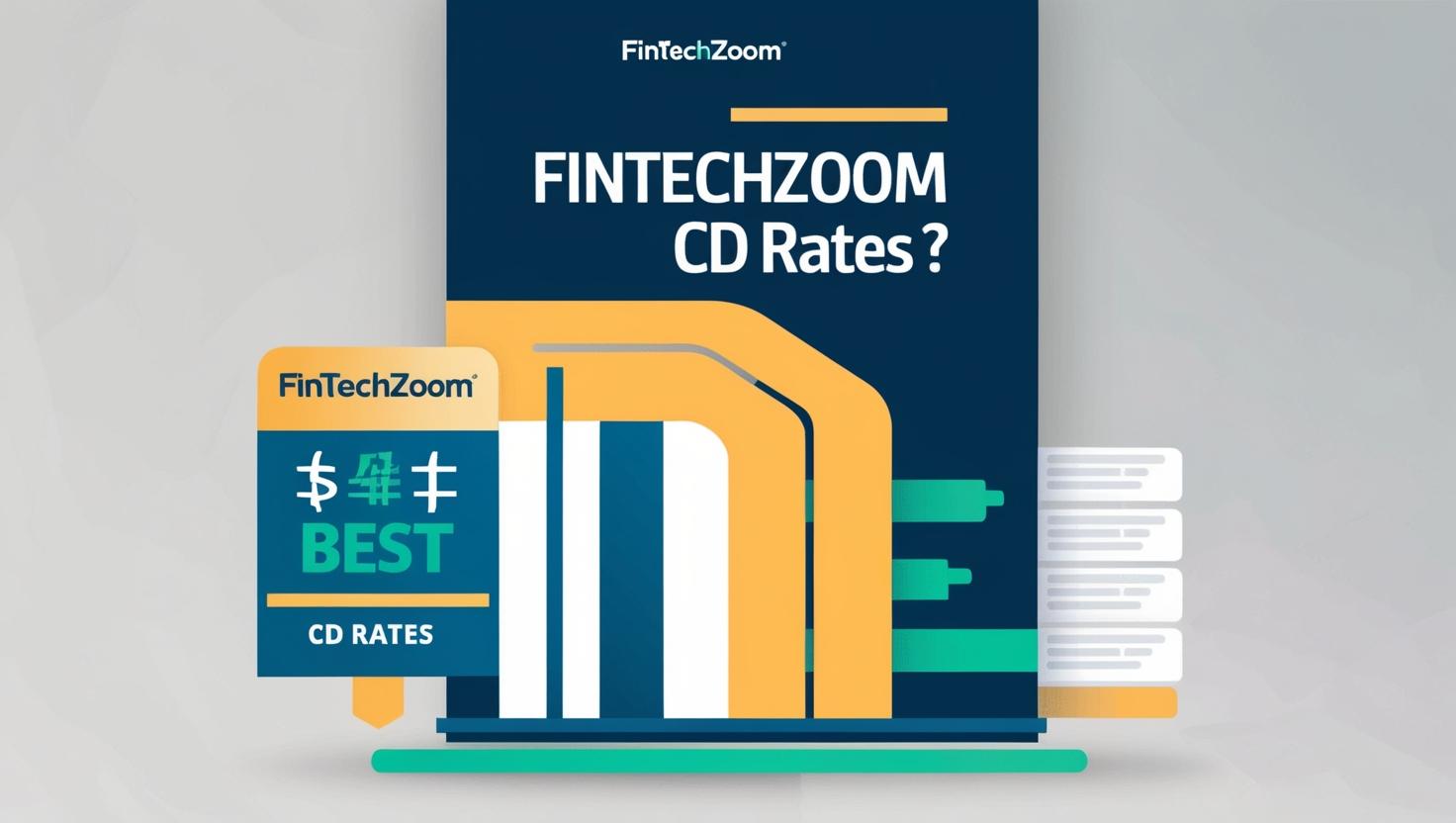Certificates of Deposit (CDs) are a popular investment option for people who want a secure and guaranteed return on their savings. FintechZoom, a financial news platform, provides insights into the best CD rates available. This article explores CD rates, how they work, and how FintechZoom helps individuals find the best deals.
What Are Certificates of Deposit (CDs)?
A Certificate of Deposit (CD) is a type of savings account that holds a fixed amount of money for a set period. In return, the bank or financial institution offers a higher interest rate compared to a regular savings account. When the term ends, the depositor receives the original amount along with the earned interest.
Key Features of CDs
- Fixed Interest Rate – The interest rate is locked in at the time of deposit, ensuring predictable returns.
- Varied Terms – CDs can range from a few months to several years.
- Guaranteed Returns – Unlike stocks, CDs are not subject to market fluctuations.
- Early Withdrawal Penalty – If funds are withdrawn before the maturity date, a penalty may apply.
- FDIC or NCUA Insurance – Most CDs from banks and credit unions are insured, making them a safe investment.
How CD Rates Work
CD rates determine how much interest an investor earns on their deposit. These rates vary based on factors like the term length, economic conditions, and the financial institution. Generally, longer-term CDs offer higher interest rates, while shorter-term CDs provide more flexibility.
Factors Affecting CD Rates
- Federal Reserve Policies – Interest rates set by the Federal Reserve impact CD rates.
- Economic Conditions – Inflation and market demand influence interest rates.
- Financial Institution Policies – Different banks offer different rates based on their financial strategies.
- Deposit Amount – Some banks offer higher rates for larger deposits.
Why Compare CD Rates?
Comparing CD rates is crucial to maximizing returns. Even a slight difference in interest rates can lead to significant gains over time. FintechZoom helps by compiling and analyzing the best CD rates from various banks and financial institutions.
How FintechZoom Helps Find the Best CD Rates
- Updated Listings – FintechZoom provides up-to-date CD rate comparisons from top banks.
- User-Friendly Interface – The website makes it easy to filter and compare CD rates based on term length, deposit amount, and financial institution.
- Expert Insights – Financial experts offer guidance on choosing the best CD options.
- Bank Reviews – FintechZoom includes reviews of banks, helping users make informed decisions.
- Rate Alerts – Users can set alerts to receive notifications when better CD rates become available.
Top Banks Offering the Best CD Rates
Based on FintechZoom’s data, some of the banks known for offering competitive CD rates include:
- Ally Bank – Offers no-penalty CDs with competitive rates.
- Discover Bank – Provides high-yield CDs with flexible terms.
- Marcus by Goldman Sachs – Features top rates with a low minimum deposit requirement.
- CIT Bank – Known for its high-yield and jumbo CD options.
- Synchrony Bank – Offers attractive rates with no minimum deposit.
Short-Term vs. Long-Term CDs
Investors must decide between short-term and long-term CDs based on their financial goals.
- Short-Term CDs (3-12 months) – Good for those who need access to funds soon.
- Medium-Term CDs (1-3 years) – Suitable for individuals seeking a balance between flexibility and higher interest.
- Long-Term CDs (3-5 years or more) – Ideal for those who want maximum returns and don’t need immediate liquidity.
No-Penalty and Bump-Up CDs
Some banks offer special CD options with additional benefits:
- No-Penalty CDs – Allow early withdrawal without fees.
- Bump-Up CDs – Permit rate increases if market rates go up during the term.
Strategies to Maximize CD Returns
- CD Laddering – Spreading investments across multiple CDs with different maturities to balance liquidity and earnings.
- Reinvesting Interest – Letting the interest compound for higher returns.
- Monitoring Market Trends – Keeping track of interest rate changes to invest at the right time.
How to Open a CD Account
Opening a CD is simple and usually involves these steps:
- Choose a Bank – Compare rates using platforms like FintechZoom.
- Select a Term – Decide on the length based on financial needs.
- Deposit Funds – Transfer the required amount to the CD account.
- Monitor Growth – Keep track of earnings and reinvest when needed.
Common CD Mistakes to Avoid
- Ignoring Penalties – Withdrawing funds early can lead to fees.
- Not Comparing Rates – Sticking with the first option may result in lower returns.
- Overlooking Terms and Conditions – Some CDs have restrictions that may not suit all investors.
Future of CD Investments
With changing interest rates and economic conditions, CD investments continue to evolve. Digital banking and fintech platforms like FintechZoom make it easier than ever to find the best rates and make informed financial decisions.
